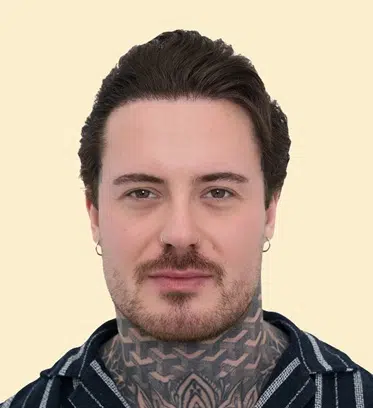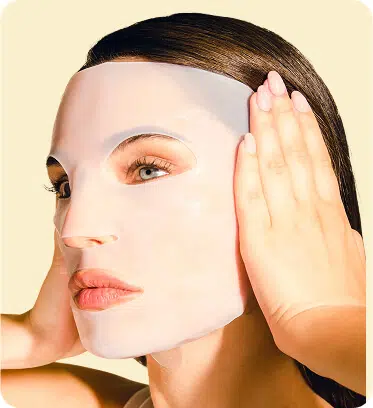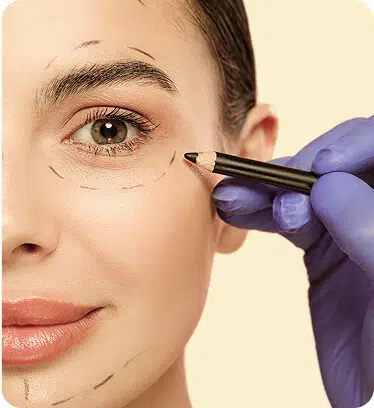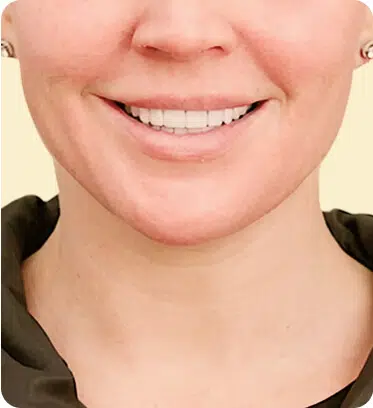Loss of hair at the temples or thinning hair is often one of the first signs of eventual (genetic) hair loss. That said, hair loss at the temples may be a result of your behaviour and lifestyle, meaning this instance of hair loss is preventable and treatable.
Getting to grips with this type of hair loss takes a bit of understanding about what causes it and how to effectively treat temple hair loss.
What Causes Hair Loss At Temples?
You might be surprised to hear that it is not only men who experience hair loss around the temples. Women can also experience this type of hair loss for reasons that are unique to females.
Temple hair loss has several causes worth exploring and may include:
Male pattern baldness
Also known as androgenetic alopecia, this type of hair loss is often indicated by hair loss at the temples. This is one of the most common causes of hair loss for men. Studies indicate genetics account for about 80% of male pattern baldness.
Male pattern baldness starts around the temples and continues around the perimeter and the crown of the head, it often looks like a ring of hair around the bottom of the scalp.
Female pattern baldness
For women, this type of hair loss (androgenetic alopecia) is indicated by hair becoming less dense resulting in the scalp becoming more visible, and the temples can become more exposed.
There are several types of hair loss for females, the most common is female pattern baldness, a hereditary condition that can also be influenced by hormone levels and ageing.
Lack of nutrients
Hair loss can be linked to a lack of protein as well as a deficiency in specific vitamins and minerals, including vitamin D and vitamin B, biotin, iron, and zinc.
Stress
Hair loss can result from extreme stress and shock, this is known as telogen effluvium. Stress-related hair loss usually starts about 3 to 6 months after a traumatic experience. Signs to look for include: increased hair shedding, thinning hair, and patches of missing hair.
Medication side effects
Hair loss can be a rare medication side effect; however, a variety of drugs may contribute, including oral birth control.
Hormonal changes in males
Dihydrotestosterone (DHT), a derivative of testosterone, in an excessive amount can cause hair loss. DHT affects hair follicles by shrinking and shortening the hair, which makes it easier to fall out as well as hard to regrow.
Hormonal changes in females
Pregnancy and menopause are often associated with hair loss. As women age, hormone levels play a role in hair loss during menopause as oestrogen (i.e., estrogen) and progesterone levels drop; hair becomes finer and thinner as follicles shrink, hair grows more slowly and falls out more frequently. After a pregnancy, postnatal hair loss can be a concern.
Hairstyles
Unfortunately, some chemical hair treatments and hairstyles may contribute to hair loss, this is called traction alopecia. Temple hair loss can be caused by pulling hair back into tight hairstyles that put undue tension on the hair roots. When hair is pulled from the roots to make a hairstyle it may cause long-term damage (e.g., man buns, extensions, ponytails, braids).
Female Hair Loss At Temples
Why do women experience hair loss around the temples?
Female temple hair loss is uniquely connected to life experiences like pregnancy. For many women, pregnancy, childbirth, and postpartum experiences can result in hair loss related to severe stress (telogen effluvium).
A common female type of hair loss is postpartum hair loss temples. What that essentially means is pregnancy and giving birth affects women both mentally (i.e., stress) and physically (i.e., hormonal). The female body goes through a lot having a baby, and as a result postnatal hair loss can be a result of stress and hormonal changes.
Hair loss, specifically temple hair loss, can be an issue for women after giving birth. According to the NHS, as many as 50% of postnatal women experience hair loss within six months of giving birth.
When it comes to this type of hair loss at the temples, advances in laser hair loss therapy, technology and surgery means retaining the hair you have, regrowing your hair, and replacing hair is possible. Besides having a lovely head of hair again, your self-esteem and confidence will skyrocket after a hair loss treatment targeting your temples!
Ladies, Tips To Prevent Hair Loss At Temples
One way to prevent hair damage at the temples is to take a look at your grooming routine. When styling your hair, if it feels sore and tender at the scalp and hairline, it’s a sign your hair follicles are unhappy.
Here are some behavioural tips to help prevent stress along the hairline and at the temples.
Avoid excessive twisting and pulling of the hair from the temples
Avoid hair treatments that can damage or over process your hair
Be careful when using hot irons around the hairline
Alternate hairstyles that pull hair back tightly
Boost your diet with protein, omega-3 fatty acids, and vitamins
Effective Treatments For Temple Hair Loss
Two of the best and most popular are PRP for temple hair loss and laser hair growth therapy. These treatments are for both women and men looking for temple hair loss regrowth.
PRP & Mesotherapy Hair Loss Treatment
This popular microinjection treatment targets the mesoderm (below the scalp’s surface) to halt hair loss and stimulate hair regrowth. Mesotherapy is an efficient technique for slowing hair loss and treating hair loss around the temples.
Laser Hair Regrowth
For Women
For Men
This regrowth treatment is excellent for treating hair loss at the temples, thinning hair and pattern baldness. Laser therapy stimulates hair follicles and the natural growth cycle. This treatment has a 95% success rate, and you can see results in about 4 months. This is an ideal treatment to replenish the scalp with new hair growth.
The sooner you address your temple hair loss, the more likely you are to prevent further thinning and site-specific balding.
If you have questions about our Este Medical temple hair loss treatment, we invite you to arrange a hair loss consultation at your nearest UK clinic.
Last Updated:
March 9, 2023












